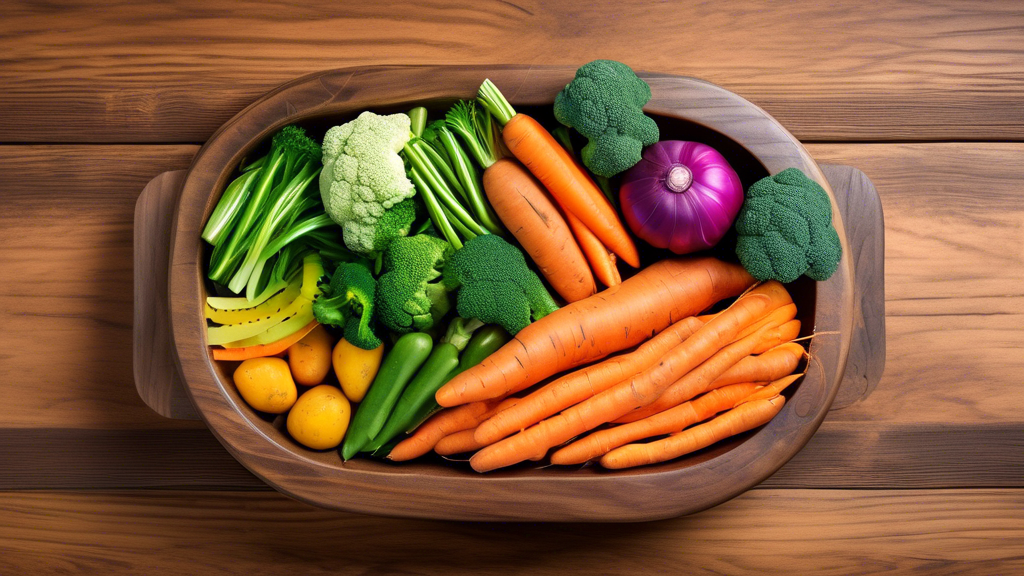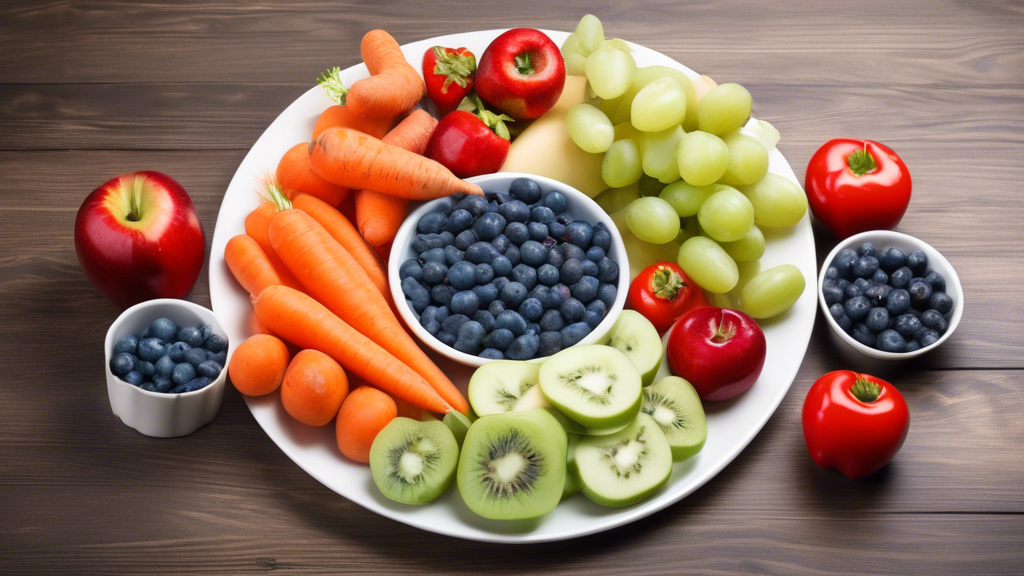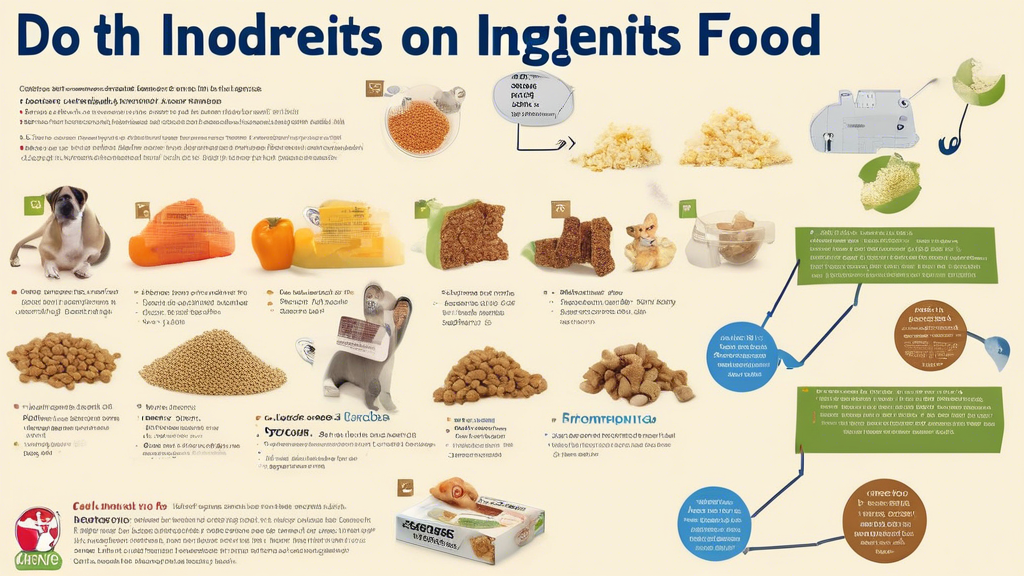What Fruits and Vegetables Can Dogs Eat?
**Introduction:**
As responsible dog owners, we want to provide our furry companions with a healthy and balanced diet. While commercial dog food can meet their nutritional needs, incorporating fresh fruits and vegetables can enhance their overall well-being. This comprehensive article explores the world of canine-friendly fruits and vegetables, providing a list of safe and beneficial options along with their nutritional value. From the sweet crunch of apples to the leafy greens of spinach, discover the wide range of produce your dog can enjoy as a nutritious and tasty treat.
**Safe for Dogs?**
Before adding any fruits or vegetables to your dog’s diet, it’s crucial to understand which ones are safe and which should be avoided. In this article, we will focus on the fruits and vegetables that are generally considered safe for canine consumption. Additionally, we will provide tips on how to prepare and serve these foods safely to your furry friend.
**Safe Fruits for Dogs: A Nutritious Treat**
**Introduction**
Fruits, when consumed in moderation, can be a healthy and refreshing treat for dogs. They provide a variety of essential vitamins, minerals, and antioxidants that can support your dog’s overall well-being. However, not all fruits are safe for dogs to eat, and some can even be toxic. In this section, we will cover the most common fruits that are safe for dogs to consume, highlighting their nutritional benefits and potential risks.
**Dog-Friendly Fruits**
Here is a list of some of the safest and most nutritious fruits for dogs:
- Apples: Apples are a good source of fiber, vitamin C, and potassium. Remove the seeds and core before feeding to your dog.
- Bananas: Bananas are rich in potassium, fiber, and vitamin B6. They should be given in moderation due to their high sugar content.
- Blueberries: Blueberries are a powerful antioxidant that can help protect against cell damage. They are also a good source of vitamin C and fiber.
- Cantaloupe: Cantaloupe is a good source of vitamin A, vitamin C, and potassium. Remove the rind and seeds before feeding to your dog.
- Cranberries: Cranberries are known for their urinary tract health benefits. They are also a good source of vitamin C and antioxidants.
- Mango: Mangoes are a good source of vitamin A, vitamin C, and potassium. Remove the pit and skin before feeding to your dog.
- Oranges: Oranges are a good source of vitamin C, potassium, and fiber. Remove the peel and seeds before feeding to your dog.
- Pears: Pears are a good source of fiber, vitamin C, and potassium. Remove the core and seeds before feeding to your dog.
- Pineapple: Pineapple is a good source of vitamin C, manganese, and bromelain, an enzyme that can help with digestion. Remove the tough outer skin and core before feeding to your dog.
- Strawberries: Strawberries are a good source of vitamin C, fiber, and manganese. They should be washed thoroughly before feeding to your dog.
- Watermelon: Watermelon is a good source of hydration, potassium, and vitamins A and C. Remove the rind and seeds before feeding to your dog.
**Serving Guidelines**
When giving your dog fruits, it is important to do so in moderation. Fruits should not make up more than 10% of your dog’s daily diet. Always introduce new fruits gradually to avoid digestive upset. If your dog shows any signs of an allergic reaction, such as vomiting, diarrhea, or skin irritation, discontinue feeding the fruit and consult with your veterinarian.
**Conclusion**
Fruits can be a healthy and enjoyable treat for dogs when given in moderation. By choosing from the safe fruits listed above, you can provide your dog with essential nutrients and antioxidants that can support their overall health and well-being. However, it is important to remember that not all fruits are safe for dogs, and some can even be toxic. If you are unsure about whether or not a particular fruit is safe for your dog to eat, always consult with your veterinarian.
The #1 Free Source for Pitbull & Bully Pedigrees!

## Safe Vegetables for Dogs: A Variety of Options
### Benefits of Vegetables in a Canine Diet
Incorporating safe vegetables into a dog’s diet provides a range of health benefits:
* **Essential vitamins and minerals:** Vegetables are rich sources of vitamins A, C, K, and many essential minerals, including potassium, magnesium, and iron.
* **Fiber:** Dietary fiber aids digestion, promotes satiety, and helps prevent constipation.
* **Antioxidants:** Vegetables contain antioxidants that protect cells from damage and can help reduce the risk of chronic diseases.
* **Hydration:** Vegetables have a high water content, which helps keep dogs hydrated.
### List of Safe Vegetables for Dogs
Numerous vegetables are safe and nutritious for dogs, including:
* **Carrots:** Packed with beta-carotene (vitamin A), fiber, and antioxidants.
* **Celery:** Low in calories and rich in fiber, vitamins, and minerals.
* **Spinach:** An excellent source of vitamins K, A, and C, as well as iron and calcium.
* **Green beans:** A good source of fiber, vitamins, and minerals, including magnesium and folate.
* **Sweet potatoes:** Rich in vitamins A, C, and beta-carotene; provides fiber and energy.
* **Broccoli:** Contains vitamins C, K, and A; also a good source of fiber and antioxidants.
* **Cucumbers:** A low-calorie snack that provides hydration and essential vitamins.
* **Bell peppers:** A source of vitamins A, C, and K, as well as antioxidants and fiber.
* **Pumpkin:** Rich in fiber and vitamins A, C, and E; can help alleviate digestive issues.
* **Zucchini:** A good source of vitamins A, C, and K; also provides fiber and antioxidants.
### Guidelines for Feeding Vegetables to Dogs
While vegetables can be a healthy addition to a dog’s diet, they should be fed in moderation and as part of a balanced meal.
* **Start gradually:** Introduce new vegetables slowly to avoid digestive upset.
* **Cooked or raw:** Most vegetables can be fed either cooked or raw, but some, like broccoli, are better cooked to enhance digestibility.
* **Avoid certain vegetables:** Onions, garlic, and grapes are toxic to dogs.
* **Monitor portion sizes:** Vegetables should make up no more than 10% of a dog’s daily caloric intake.
* **Consult with a veterinarian:** Consult your veterinarian before incorporating vegetables into your dog’s diet, especially if it has any health conditions.
**Conclusion**
Providing your furry companion with a balanced and nutritious diet is crucial for their overall health and well-being. Incorporating safe fruits and vegetables into their meal plan can enhance their nutritional intake, provide essential vitamins, minerals, and antioxidants, and boost their immune system.
Remember to introduce new fruits and vegetables gradually to avoid digestive upset. Consult with your veterinarian for specific recommendations based on your dog’s individual needs. By understanding which fruits and vegetables are beneficial for your dog, you can offer them a healthy and enjoyable treat that complements their regular diet.













Leave A Comment